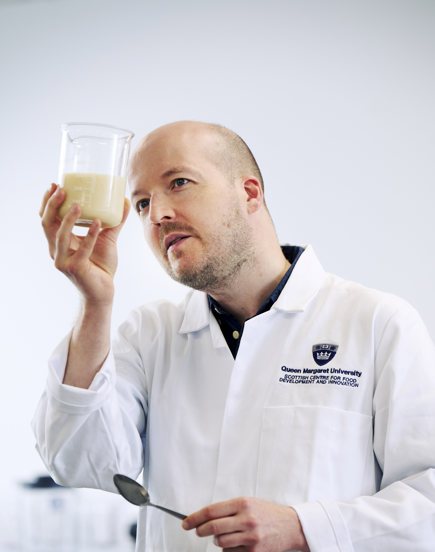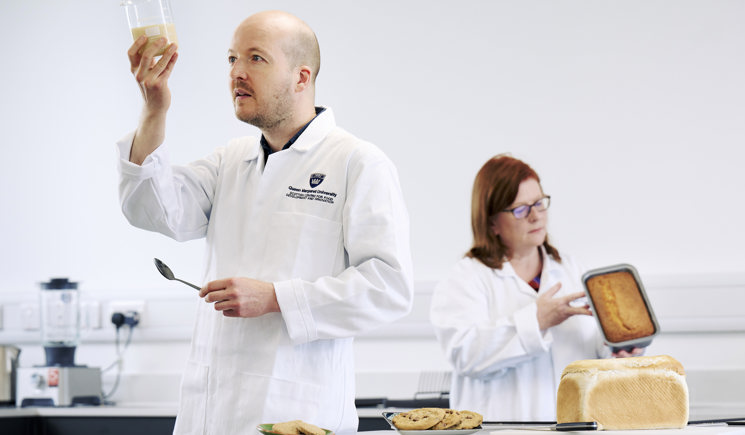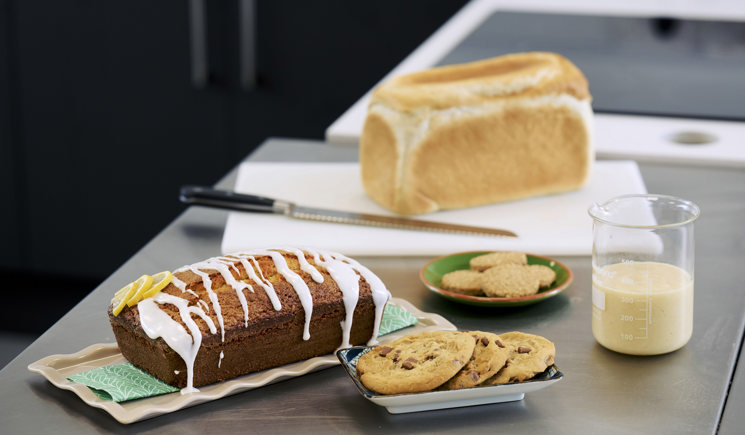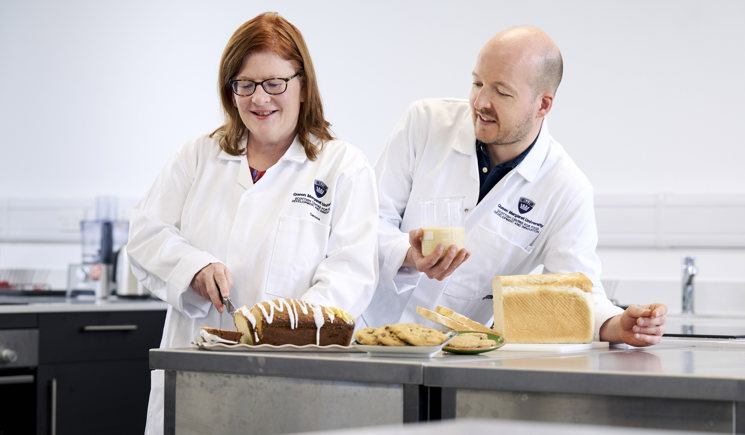PalmAlt
PalmAlt was developed by two co-inventors at The Scottish Centre for Food Development and Innovation at Queen Margaret University (QMU) as a potential replacement for palm shortening in industrial baked goods. Since starting as a short, small scale, internal project in 2017, the project has grown significantly due to success with formulation and functionality.
By working extensively with industry and funders (Innovate UK, Scottish Enterprise, and currently, The Scottish Government), PalmAlt has become a viable alternative to palm shortening, as well as butter and margarine, in the food industry.
Below, you can hear from the PalmAlt project team who discuss some of the motivations and benefits of this project along with the role innovation has played along the way.
Scottish Food & Drink September
PalmAlt delivers significant benefits of health and sustainability when compared with palm, butter and margarine. For example;
- · 70% reduction in carbon emissions compared with palm.
- · 89% reduction in saturated fat when compared with butter, 84% when compared with palm shortening.
Palm oil shortening is a hard/solid fat, high in saturates. It’s also in many products (around 50% of supermarket items contain some element of palm oil). It is highly functional in a wide range of products, has a bland taste, provides great texture, extends shelf life, and is very cost effective. We had to address each of these factors in order to make a feasible alternative for the market to consider switching.

The challenge was to replace a solid (saturated) fat such as palm shortening with a liquid oil based (mostly unsaturated) product and still retain the same functionality. In addition, a number of companies are working on palm oil replacement, and it was important for us to create a product using “real” (i.e. clean label) ingredients so that consumers didn’t feel that they were consuming a “chemical” product.
The next challenge was upscaling methodology from lab to large scale and, following some industrial challenges (this was during early Covid restrictions), we upscaled using specialist kit and leasing industrial scale partner facilities. The results were very positive and we were able to progress to the next stage. Our equipment is currently sited at ONE Seedpod in Aberdeen, where trialling continues.

Once the product was developed, we carried out a large number of application trials (mostly in bakery – bread, cakes, traybakes, brownies, cookies, pancakes, biscuits and oatcakes, as well as ready meals and meat alternatives. We then progressed to sensory evaluation on bread, cakes and oatcakes and our studies showed that our trained sensory panel could not determine differences between those using palm shortening and those with PalmAlt.

PalmAlt has performed successfully in a large number of bakery applications, and we are extending testing into new applications, providing a healthier and more sustainable option for a number of food and drink sectors. Environmentally, the ingredients are available more locally than palm oil, with an associated reduction in carbon emissions in the region of 70% against palm oil.
The food industry is always seeking new and innovative ways to improve sustainability and health, without impacting the end user experience in terms of flavour, texture and aroma. PalmAlt meets these challenges head on.
